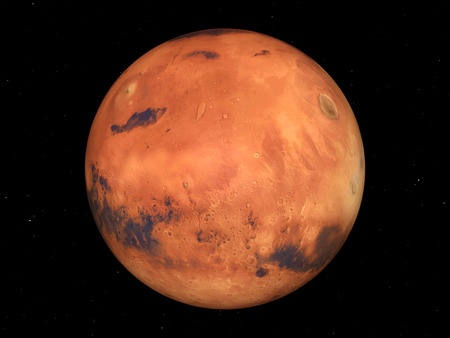NASA targets to establish human colonies on Mars by 2030s
If the National Aeronautics and Space Administration’s (NASA) projections are reliable, there should be humans populating and even working on Mars by the 2030s.
The revered US space organization detailed its ongoing plans to establish permanent residents on the red planet—human colonies living in “deep-space habitation facilities.”
READ: NASA wants you, to go to Mars
The “historic pioneering endeavor”was likened by NASA to the early settlers in America and the Moon landing, according to a Telegraph report.
“Like the Apollo program, we embark on this journey for all humanity,” NASA said in a report called “Journey to Mars.” “Unlike Apollo, we will be going to stay.”
The aerospace governing body also divulged the challenges of getting into Mars into three stages: Earth Reliant, Proving Ground and Earth Independent.
“Efforts made today and in the next decade will lay the foundation for an Earth Independent, sustained presence in deep space. Living and working in space require accepting risk and the journey is worth the risk,” NASA said.
“We seek the capacity for people to work, learn to operate and sustainably live beyond Earth for extended periods of time. Any journey to Mars will take many months each way and early return is not an option,” it added.
In preparation for the ambitious move, the space agency continues to gather information from experiments aboard the International Space Station. One of the major components being developed is for the crew to be able to live in deep space without health problems from radiation and the effects of micro-gravity.
However, the astronauts’ amount of time in space is still limited due to fears of developing space radiation cancer. Most crew members also develop vision problems upon return because of the effects of micro-gravity, which causes pressure to build up in the optic nerve.
The group is also looking into the possibility of astronauts developing dementia or fertility problems while in unfamiliar terrain.
Despite some potential health hazards, NASA Administrator Charles Bolden remains optimistic that they have ample time to solve these issues and finally land on Martian surface.
“NASA is closer to sending American astronauts to Mars than at any point in our history,” he said.
“Today, we are publishing additional details about our journey to Mars plan and how we are aligning all of our work in support of this goal. In the coming weeks, I look forward to continuing to discuss the details of our plan with members of Congress, as well as our commercial and our international partners, many of whom will be attending the International Astronautical Congress next week,” he added.
A separate Mars colonization project, meanwhile, is also looking to accomplish the same thing.
The Mars One project, a nonprofit organization based in the Netherlands, has also proposed to land the first humans on Mars and establish a permanent human colony by 2027. Khristian Ibarrola
